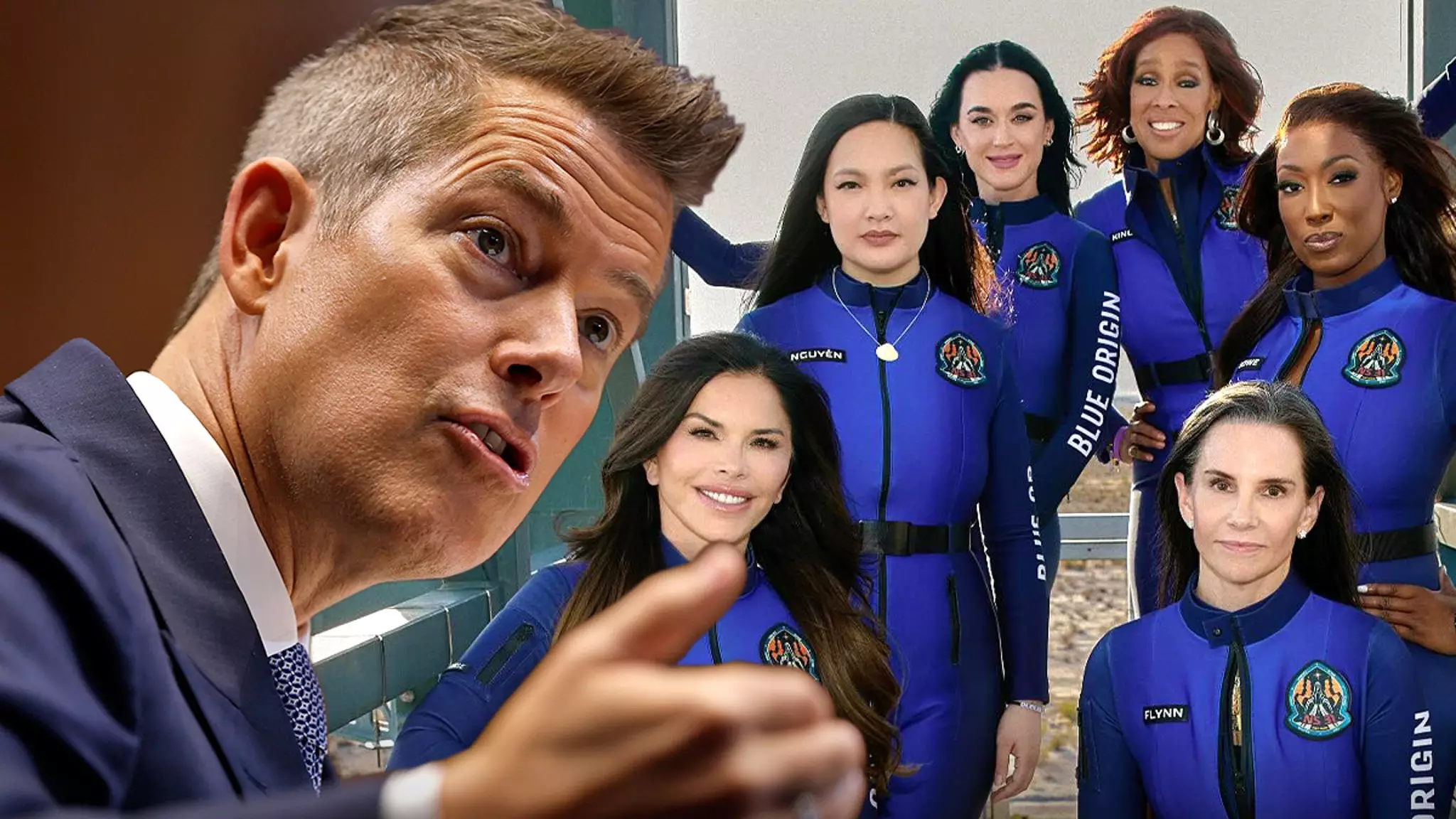The recent journey into space by a notable group of women—Katy Perry, Lauren Sánchez, Gayle King, Aisha Bowe, Amanda Nguyễn, and Kerianne Flynn—has reignited discussions about the definition of an astronaut and the implications of commercial space travel. These six women made headlines after a brief but historic 11-minute flight organized by Blue Origin, the company founded by Amazon’s Jeff Bezos. While many celebrated their venture as a leap into new frontiers, criticism swiftly followed, most notably from U.S. Transportation Secretary Sean Duffy. In his remarks, he emphasized that, despite their accomplishments and social status, they fall short of being classified as true astronauts. This provocation opens a Pandora’s box regarding identity, achievement, and the role of privilege in a world where space travel is becoming increasingly accessible.
A Technical Perspective on Astronaut Classification
According to the Federal Aviation Administration (FAA), a bona fide astronaut must meet specific criteria, particularly engaging in activities vital for public safety or contributing to the overall safety of human space flight. Duffy, referencing these regulations, pointed out that while the women reached an altitude of 62 miles—thus technically crossing into space—they did not perform tasks that would justify the title of an astronaut. This commentary raises important questions about the evolving nature of space travel and what it signifies in a society where commercial ventures frequently redefine boundaries. The updates to the FAA guidelines in 2021 reflect a growing need to establish clarity in a burgeoning industry.
Is it fair, then, to critique these women for not adhering to a stringent definition of contribution when they participated in a pioneering endeavor? Perhaps the desire for such rigid classifications overlooks the larger context: these influential figures, by their very participation, brought unprecedented visibility to space exploration.
An Outcry of Criticism
The backlash to this flight has been multifaceted, with various voices, including fellow celebrities, expressing disdain for what they deem frivolous and elitist. Supermodel Emily Ratajkowski called the expedition “disgusting,” and Olivia Munn voiced concerns about the trip’s extravagance amid rising costs of living, where some Americans are struggling to afford basic necessities. Such critiques speak to a larger societal tension regarding wealth disparity and the responsibilities of those who occupy privileged positions. Are these space excursions a demonstration of human ingenuity and adventure or a symbol of excess and detachment from pressing terrestrial issues?
For many, the notion of spending millions on a brief jaunt into the cosmos feels misaligned in a world where socio-economic challenges persist. It’s crucial to unpack this narrative; while acknowledging the significant achievement these women represent, we must also reflect on whom these ventures serve and what messages they send.
The Pushback from the Participants
In contrast to the criticism, some of the flight’s participants have staunchly defended their mission. Gayle King emphasized that her journey does not diminish the importance of addressing urgency on Earth. This defense showcases the complexity of holding two opposing thoughts at once—celebrating human progress while remaining aware of ongoing issues below. King’s sentiment reveals a common thread among advocates for space exploration: the belief that pushing boundaries in the cosmos can yield advancements that ultimately benefit life on Earth.
Jessica Alba’s suggestion to redirect criticism toward political leaders like Donald Trump highlights the tendency to seek accountability elsewhere. Perhaps it is easier to attack individuals who embody the quintessence of glamour and success rather than address systemic issues that lead to societal injustices. The larger conversation about who is entitled to dream and explore should focus on creating opportunities for all, rather than limiting space travel to a select few.
Future Prospects in Space Exploration
As commercial space flight gains traction, the industry stands at a crossroads. The question remains whether society is ready to embrace a new wave of space travelers, defined by passion rather than their contributions during flight. What does it mean for future generations when they see their idols reach for the stars? Will this ignite a collective aspiration for exploration, while also serving as a reminder of the profound responsibility that comes with such achievements?
As space exploration continues to shift from government space agencies to private enterprises, we should thoughtfully consider the implications and future pathways for astronauts and explorers. The dream of space should ideally be an inclusive one, where contributions to our understanding of both Earth and beyond are celebrated, regardless of societal stature. In this era of rapid change, identifying who belongs among the stars is perhaps less about stringent definitions and more about acknowledging the shared human spirit that drives us to reach for the cosmos.

